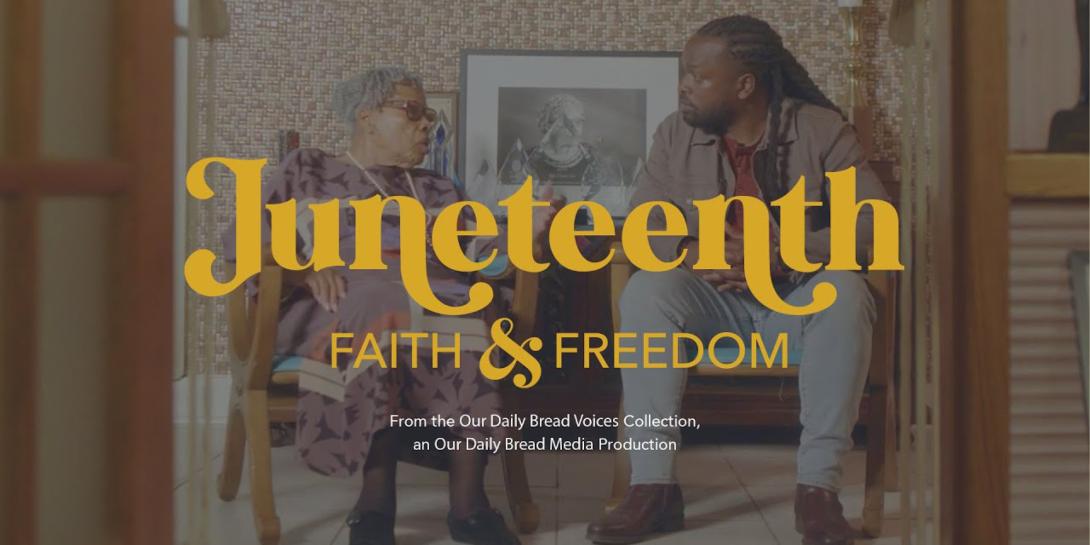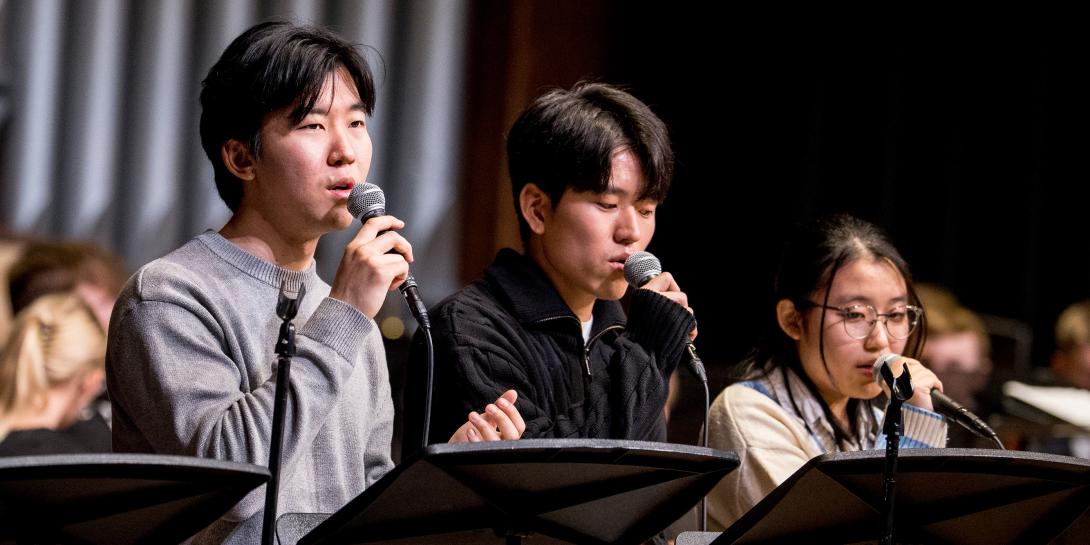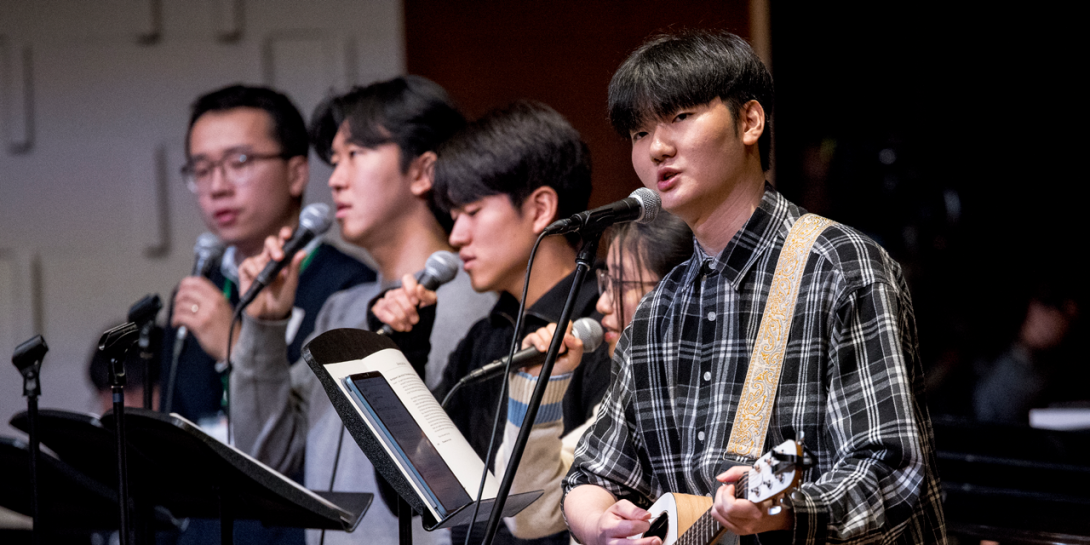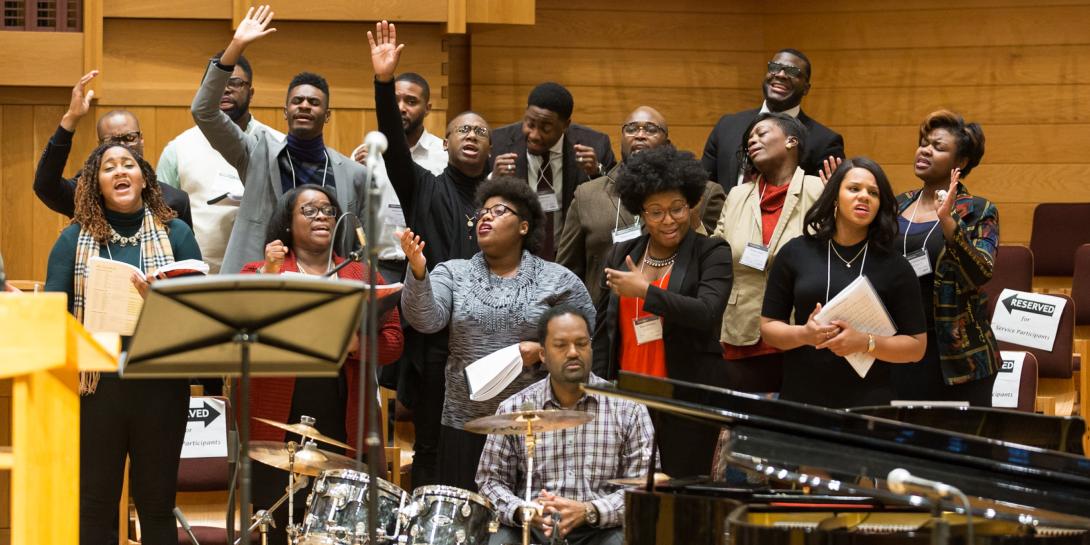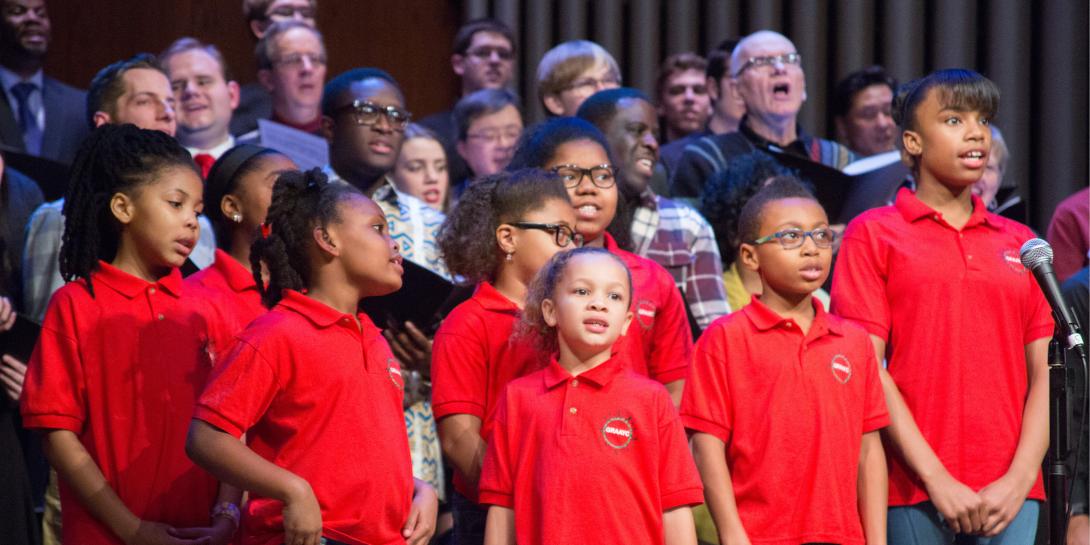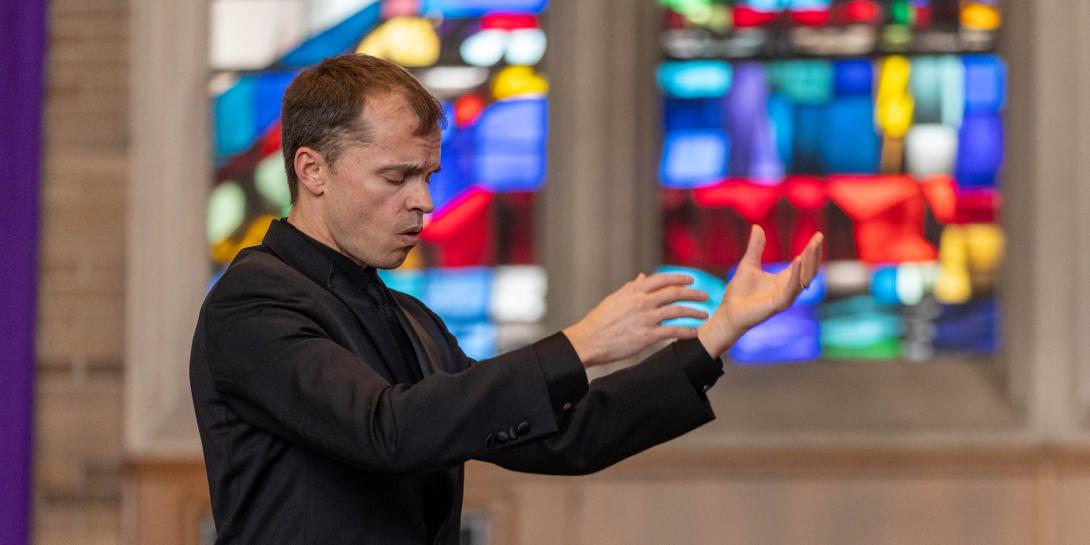Juneteenth: Celebrating Faith and Freedom
Pastor and educator Rasool Berry hosted and coproduced the award-winning documentary Juneteenth: Faith and Freedom. He explains why US Christians of every race and culture can and should celebrate God’s work through people to announce and enforce freedom from slavery.
Sarah Travis on Worship, Playfulness, and Trauma
While completing a grant on playfulness in worship, Sarah Travis began to see connections between play and trauma. Worshiping God through embodied, imaginative, and story-based practices helps people and congregations stuck in trauma begin to move toward healing and new life.
Translating Korean Heart Music into English Songs for Worship
An emerging initiative to translate contemporary Korean worship songs into English is yielding fruitful questions and collaborations. The project is building ecumenical and generational community while introducing English speakers to Korean Christians’ ardent commitment to God, both personally and communally.
Welcoming Contemporary Korean English Songs in Sunday Worship
Korean Christians worldwide enjoy contemporary worship songs by Korean composers, but these are seldom sung in the main Sunday liturgies of Korean Protestant churches. An emerging initiative to translate Korean heart songs to English can unite different worshiping generations and cultures. This initiative can also help Korean and English-speaking churches identify, appreciate, and question their cultural views on worship.
Becoming a Trauma-Informed Faith Community
Resources to help churches and other faith communities do ministry with people affected by adverse childhood experiences or other trauma.
Reuben Kigame on Music that Expresses the Full Gospel
Not many churches in Africa or elsewhere often include songs about social justice in worship. Kenyan scholar and musician Reuben Kigame believes that re-examining what the Bible says about justice and the good news should shift what we define as music appropriate for worship.
Ten Tips for Writing Worship Songs for Children
Lilly Endowment Inc. encourages intergenerational worship through its Nurturing Children Through Worship and Prayer Initiative. Worshiping together can include prayer, music, scripture, drama, visual arts, movement, testimony, and sacraments. Three grant projects include children’s worship music or songwriting for children to create immersive intergenerational worship experiences.
Nurturing Intergenerational Worship through Song
Lilly Endowment Inc. encourages intergenerational worship through its Nurturing Children Through Worship and Prayer Initiative. Worshiping together can include not only music, but prayer, scripture, drama, visual arts, movement, testimony, and sacraments. However, these three grant projects include or spotlight children’s songs or songwriting for children.
Demetrius K. Williams: African American Christians Enlarged the Meaning of the Cross
Through spirituals, freedom narratives, conversion accounts, and Black preaching, enslaved African Americans shared the embodied hope of Jesus’ death and resurrection. Like Paul, they proclaimed that the power of the cross of Christ should advance how the church participates in and quests for a more just and equitable world.
Mark Stover on Choral Music as Pastoral Ministry
Singing in a good choir is aesthetically satisfying. But choral directors have the opportunity to do so much more. Mark Stover explains how do pastoral ministry in and through choral ensembles. This includes choosing anthems that promote social justice in ways that express God’s wide welcome.
Demetrius K. Williams: Reclaiming the Full Power of the Cross
Probably every Christian knows that Paul preached about the power of the cross of Christ for personal salvation. But Christians often miss Paul’s discourse on the power of the cross of Christ to bring about social transformation. Reclaiming the full power of the cross should bring about unity and equality—in body, soul, mind, spirit, and voice—in the body of Christ and society.
W. David O. Taylor on the Collect, an Ancient Prayer Form
You’ve probably heard that we should take all of ourselves to God in prayer. But does God really care about doing laundry, aging rapidly, fighting traffic, or spending time with friends? God does care, according to W. David O. Taylor. His Prayers for the Pilgrimage: A Book of Collects for All of Life offers prayers about mundane sorrows and joys.

